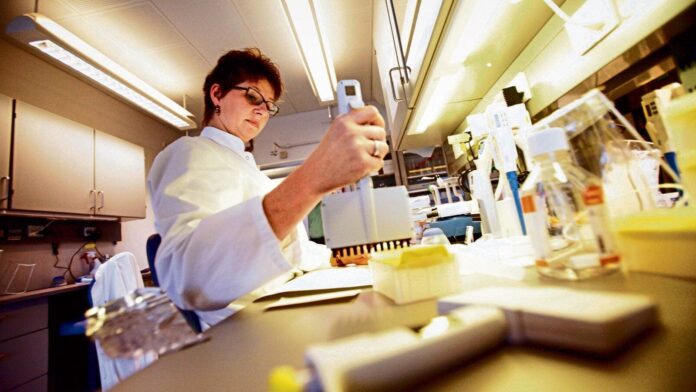The rule of thumb is that it takes a single PhD student an entire PhD span, which is around 4-5 years, to uncover a single protein’s structure. With over 200 million proteins identified in nature, AlphaFold processed all of them in less than a year, effectively saving more than a billion hours of research time.
Even more remarkably, DeepMind open-sourced this innovation, allowing academia to leverage it for faster drug discovery and cutting timelines from years to months.
AlphaFold’s success underscores the transformative potential of AI, particularly in healthcare, where biotechnology breakthroughs are poised to revolutionize patient care.
Imagine a future where bio-printed organs are available on demand, medicines are tailored to our genetic makeup and virtual healthcare provides universal access to quality care. These innovations are no longer distant dreams, but are rapidly becoming a reality, thanks to AI.
However, India must adopt a forward-thinking strategy to not only benefit from these breakthroughs, but also play a significant role in shaping the future of health technology. To do that, we need to significantly increase our focus on the following:
Research & development (R&D): India’s healthcare sector has long been ripe for transformation, but achieving it requires a shift from incremental to exponential thinking, particularly in R&D. We need bold measures.
While modest grants of ₹50 lakh to ₹1 crore might have sufficed in the past, India now needs to think in terms of ambitious moonshot projects that position us as leaders of global healthcare innovation.
India’s rich academic and research talent can be mobilized for such bold initiatives. For instance, bio-engineering breakthroughs such as gene-editing tools like CRISPR and advancements in drug delivery systems are areas where India could not only catch up with the world’s most cutting-edge developments, but also lead the charge to ensure we are innovating for inclusive access to healthcare.
Major investment in healthcare R&D is essential if India is to stand out as a global hub of health tech innovation.
Data as a catalyst for innovation: Contrary to popular analogies, the value of data does not increase when stored, unlike oil. Data’s value is unlocked in its usage. In healthcare, the value of data lies in its ability to offer actionable insights, making it a critical asset for innovation.
India has vast data reserves, particularly with its large and diverse population. By making this data available to researchers and innovators, we can unlock new possibilities for medical research and personalized healthcare solutions.
Data, combined with AI, has the potential to significantly accelerate the discovery of new treatments, tailor medical interventions to individuals and improve the overall quality of care.
Regulation for innovation: The role of regulation in healthcare cannot be overstated, especially when dealing with AI. India must adopt a sectoral approach, one that balances innovation with safety and efficacy. Healthcare AI models need careful scrutiny, but the rules should evolve in a way that does not stifle innovation.
AI-powered diagnostic tools, for example, can significantly improve early disease detection, but they need a regulatory framework that ensures their safe implementation. Establishing regulatory sandboxes for novel healthcare technologies will allow responsible AI-driven innovation in this field, and this will be key to driving future progress.
Investing in people as part of a human-centric approach: While technology may enable these innovations, the real driver of progress is people. Investing in human capital is just as crucial as investing in technology. Human-centricity must guide the entire innovation process, ensuring that AI and biotechnological advancements serve the broader good.
From training healthcare professionals to developing talent in AI and data science, India needs to build a robust ecosystem that supports both technology and its human users.
Conclusion: India stands at the cusp of a healthcare revolution, with AI and biotechnology poised to reshape the future of medicine and human life itself. But our success as we advance towards this exciting new frontier depends on the choices we make today.
We must embrace a bold approach to R&D, unlock the power of our data, create progressive regulations and invest wisely in human-centric innovations. If we act deliberately and ambitiously right now, India will not only be a beneficiary of global breakthroughs, but will emerge as a global leader in health-tech innovation.
Let’s choose to lead.
#Healthcare #India #lead #shaping #future #biotech
